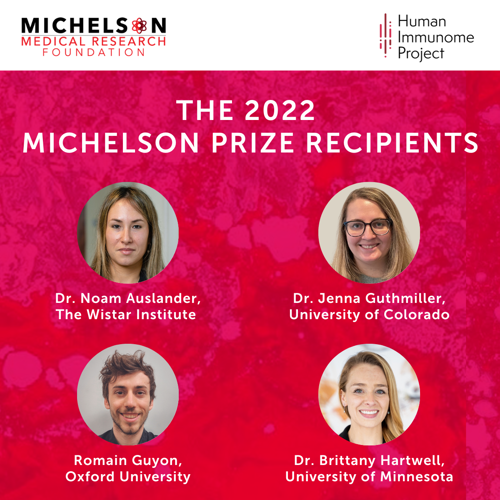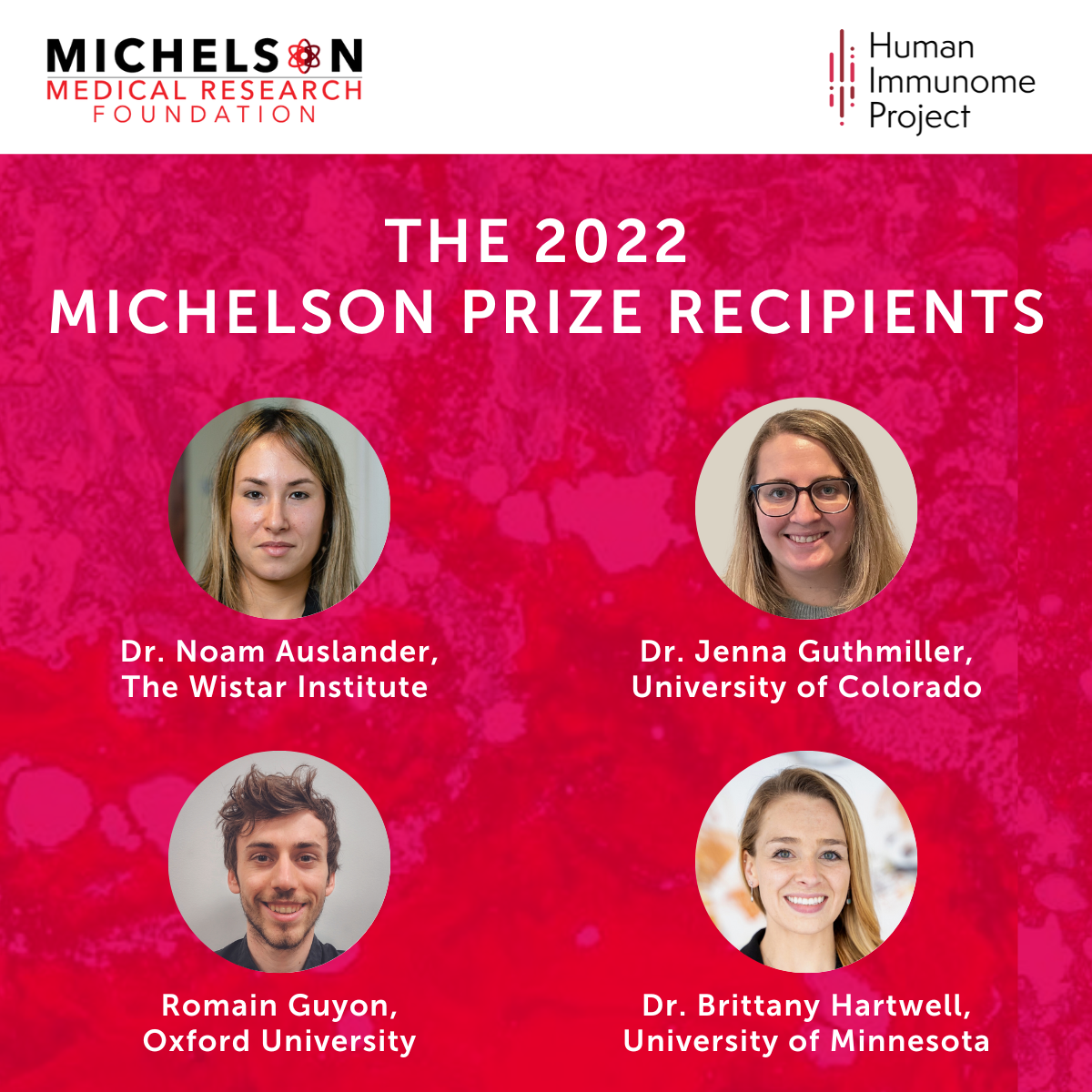24 Jan 2023
IBME DPhil student Romain Guyon awarded 2022 Michelson Prize
Prizes support early-career researchers working to advance human immunology, vaccine discovery, and immunotherapy research for major global diseases

The Michelson Medical Research Foundation and The Human Immunome Project today announced the recipients of the 2022 Michelson Prizes: Next Generation Grants. The $150,000 Michelson Prizes are awarded annually to support early-career researchers working to advance human immunology, vaccine discovery, and immunotherapy research for major global diseases.
Romain Guyon (Institute of Biomedical Engineering and the Jenner Institute) is one of four researchers who were selected by a distinguished committee of internationally recognized scientists and who represent the next generation of innovators in human immunology and vaccine research. Their proposals were chosen based on their innovation and potential impact, which aim to significantly accelerate scientific discoveries for global health challenges.
Single-dose immunization could provide an effective solution to improving global vaccination coverage and easing the logistical and cost burdens during outbreaks
“It is inspiring to see so many young scientists with a passion for innovation and courage to think creatively,” says Dr. Wayne Koff, president and CEO of the Human Immunome Project. “I look forward to seeing how their research contributes to our understanding of the human immune system – and helps further our mission to develop the first AI model of the human immunome, transforming the way we diagnose, treat, and prevent diseases for everyone.”
Romain is finishing his DPhil in Clinical Medicine, based between the Jenner Institute (with Dr Anita Milicic and Professor Adrian Hill) and the Institute of Biomedical Engineering (IBME), where he works with Professor Eleanor Stride in the BUBBL Group. He was awarded the Michelson Prize for the proposal ‘Demonstration of new single-dose vaccine technology towards a first-in-man clinical application.’ Single-dose immunization could provide an effective solution to improving global vaccination coverage and easing the logistical and cost burdens during outbreaks.
During his DPhil, Romain developed a single dose vaccine technology using microfluidic techniques, with the objective to encapsulate booster vaccine doses that release later in the body. Having filled a patent on the technology and demonstrated its ability to delay the delivery of the malaria candidate vaccine R21 in a mouse model, Romain is now aiming to apply the technology to post-exposure rabies vaccine as a postdoctoral researcher, with the support of the Michelson Prize.
He says of the prize, “I am very grateful to the Michelson Medical Research Foundation for this wonderful opportunity to establish my independency as an early career researcher and drive forward an ambitious research project, with the potential to transform future vaccination strategies.”







